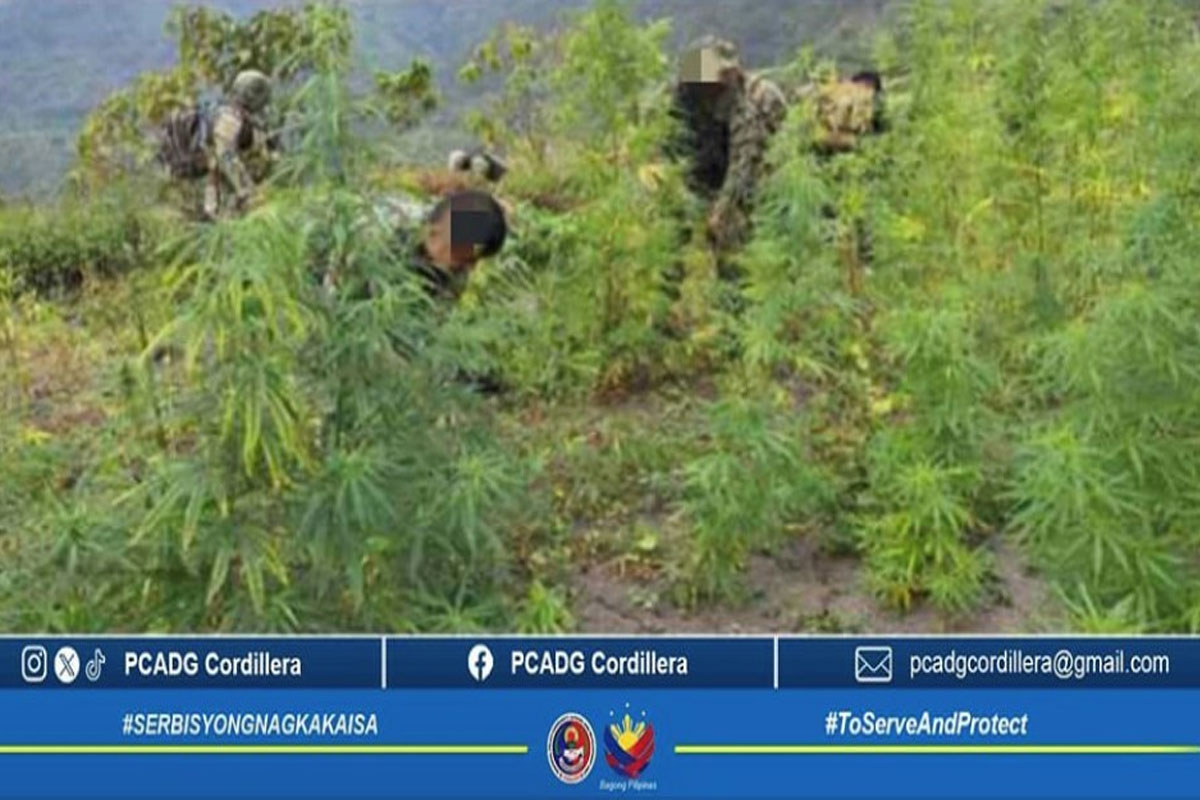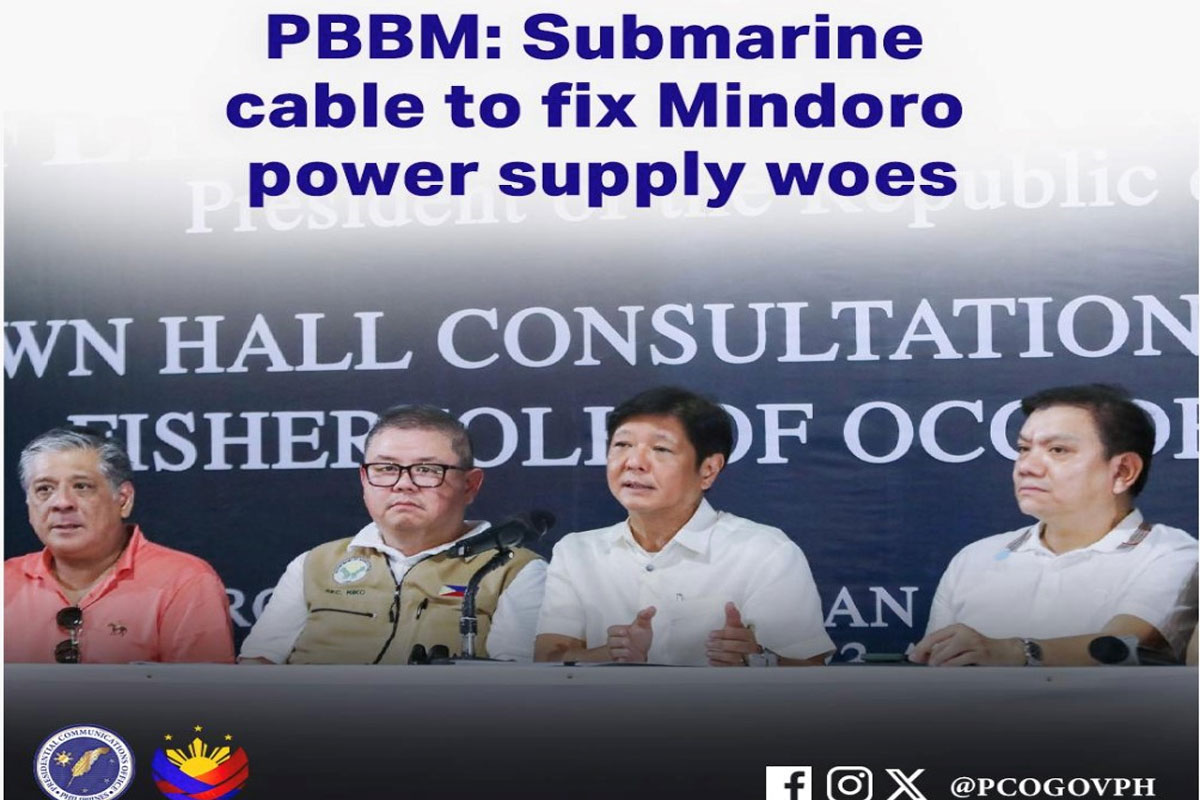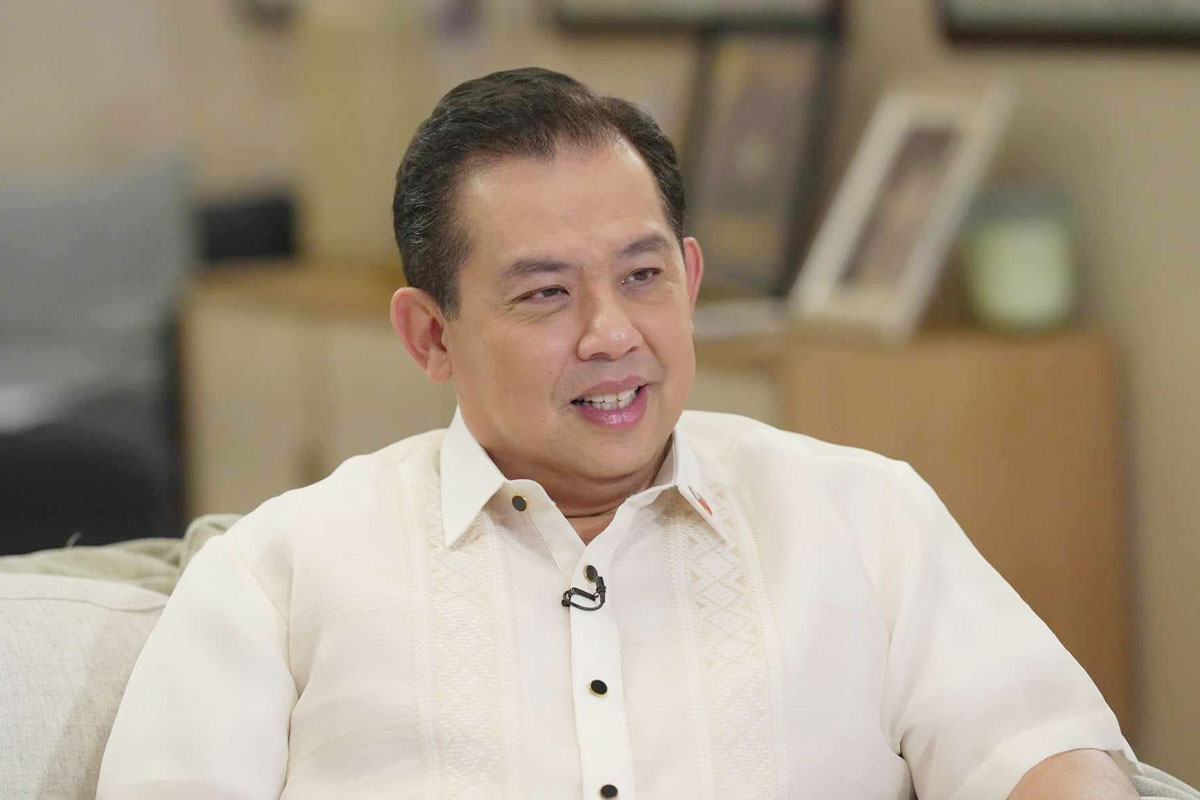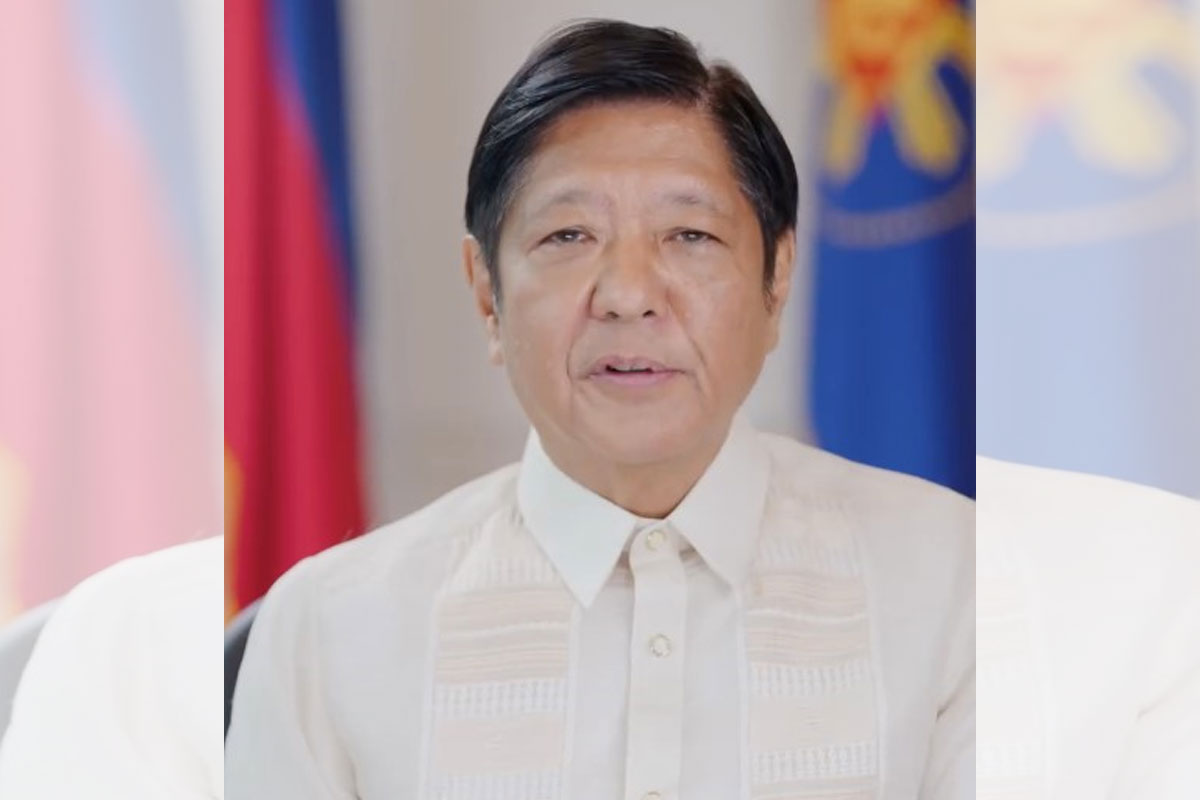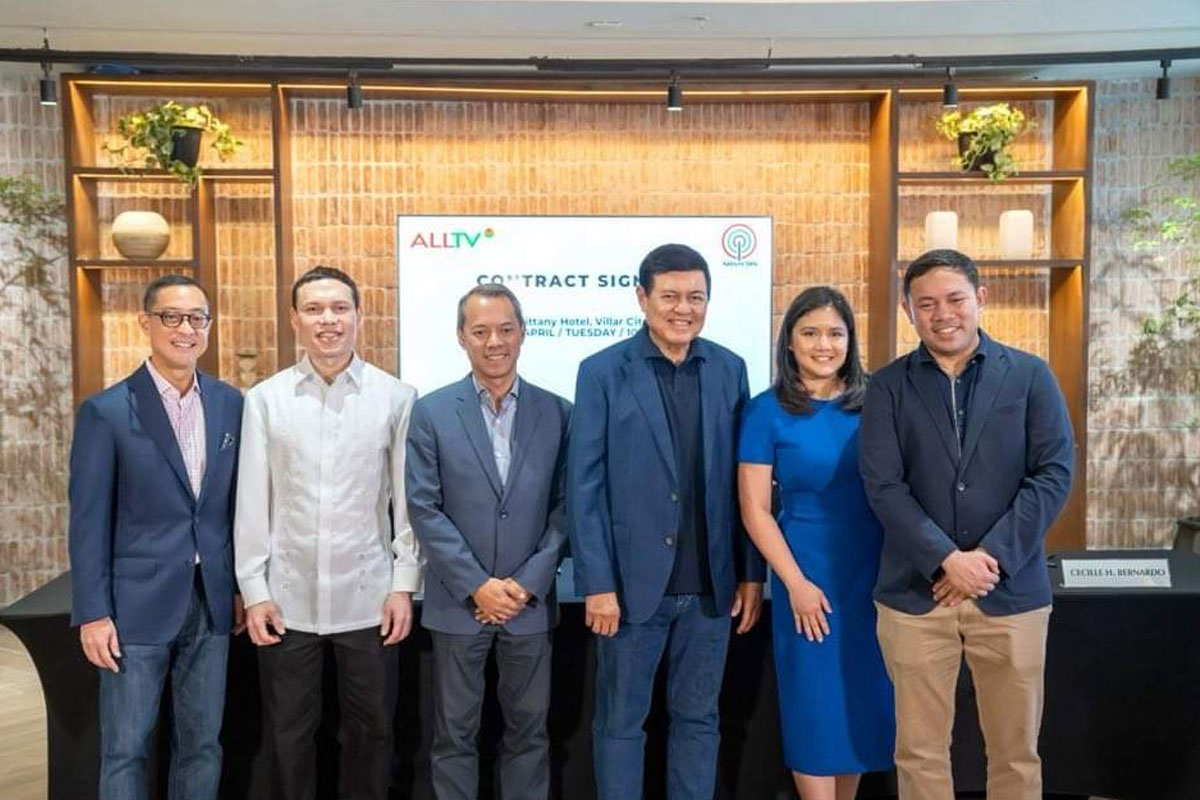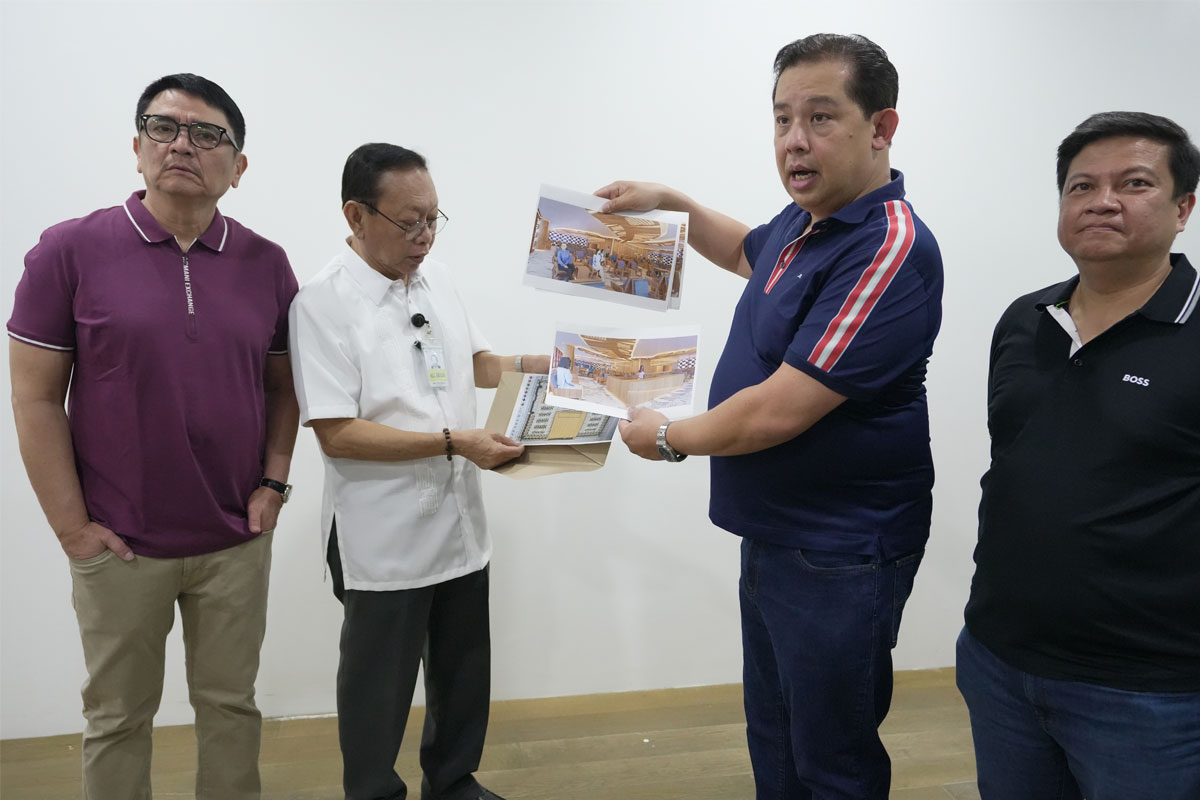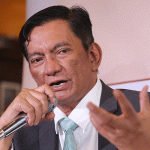 PNP chief General Guillermo Lorenzo T. Eleazar and PDEA chair Director General Wilkins M. Villanueva make the fist bump after signing the Unified PNP-PDEA Operational Guidelines at Camp Crame to prevent ‘misencounters’ between agents of the two agencies in case they happen to have the same target at the same place and time.
PNP chief General Guillermo Lorenzo T. Eleazar and PDEA chair Director General Wilkins M. Villanueva make the fist bump after signing the Unified PNP-PDEA Operational Guidelines at Camp Crame to prevent ‘misencounters’ between agents of the two agencies in case they happen to have the same target at the same place and time.
PDEA, PNP ink Unified Operational Guidelines to prevent ‘misencounters’
PHILIPPINE Drug Enforcement Agency (PDEA) chair Director General Wilkins M. Villanueva and Philippine National Police (PNP) chief General Guillermo Lorenzo T. Eleazar on Friday signed the PDEA-PNP Unified Operational Guidelines which will serve as the “Bible” of agents of the two law enforcement units in the conduct of anti-narcotics operations in the country.
The historic set of unified coordination guidelines provided a clear-cut mechanism between the PDEA and PNP prior to the conduct of planned anti-drug operations to avoid a repetition of tragic incidents like what happened during a “deadly mis-encounter” between operatives of the PDEA and the Quezon City Police District last February 24.
“The Circular should eliminate any misunderstanding, miscommunication and mis-encounter between drug law enforcement units that impedes the drug supply reduction efforts of the government’s anti-drug campaign,” Villanueva said after signing the joint memorandum circular with Eleazar at Camp Crame.
The agreement stated that only members of the PNP Drug Enforcement Group (PDEG)-Special Operations Units as well as operatives of the different Drug Enforcement Units (DEUs) of Regional, District, Provincial, City, Municipal and Police Stations are authorized to conduct anti-illegal drug operations in coordination with PDEA.
“Other operating units are not allowed to conduct anti-drug operations on their own unless jointly done with PDEG and/or the concerned DEUs that will lead and initiate coordination with PDEA,” Villanueva added.
Eleazar explained the “One Jurisdiction, One Operation” Rule shall be observed under the agreement and that in no case will be allowed any two units to operate in the same area at the same time.
“There shall only be one anti-drug operation in a particular area at a particular time covering areas of jurisdiction of PNP Stations: PS, CPS and MPS,” Villanueva noted.
In instances that the operating unit must move to another area not mentioned in the COC, a new Pre-Operation Report and Coordination Form must be submitted to PDEA.
When personal coordination cannot be made, online submission of the requirements for application in the issuance of COC is permitted, the PDEA chief said.
In case that two or more operating units simultaneously coordinated with PDEA ROC concerning the same area of jurisdiction, an order of priority shall be observed.
However, operating units may come to an agreement not to observe the order of priority as prime importance will always be given to an operation where the subject target is of greater value, Villanueva explained.
As agreed upon by the two top officials, PDEA will be provided an official list of PNP drug enforcement operatives, including their designation and contact number of the Team Leader, for purposes of reference and verification prior to the issuance of COC and monitoring of reportorial requirements.
Non-compliance with the provisions of the circular will not prejudice the evidentiary value of the seized drug evidence and/or the case but the personnel liable shall be dealt with administratively or criminally pursuant to existing civil service rules and the applicable laws and regulations, both Eleazar and Villanueva emphasized.
“From this day forward, the lines of communication among drug law operating units are clearer. All coordination before the conduct of all anti-drug operations will be put into writing and in strict accordance with the issued unified guidelines,” the PDEA chief said.
Eleazar thanked the men and women of the PNP and PDEA who crafted the guidelines following a series of consultations. He particularly cited the PNP Directorate for Operations headed by Major Gen. Alfred S. Corpus and its deputy Brigadier Gen. Franco Simborio as well as their counterparts from the PDEA led by Director Wardley Getalla.
Simborio admitted that the remarkable anti-drug accomplishments made by the PNP and PDEA over the past five years have been tainted by several accusations of brutality, use of unreasonable force and misunderstanding between the two agencies just like what happened in Commonwealth Avenue in Q.C. early this year.
“The PNP and the PDEA are closely coordinating with each other in the conduct of anti-drug operations. All planned operations by the PNP are coordinated and reported to PDEA yet there is no black-and-white agreement on such matter,” he said.
The official said with the signing of the unified guidelines, they will be finally able to avert communication gaps between PNP and PDEA operating units and ensure there won’t be loopholes and no human rights will be violated during the conduct of anti-drug operations.
Villanueva, a “foster brother” and underclassman of Eleazar from Philippine Military Academy, described Friday’s occasion as “one of the most important documents signed in Philippine law enforcement history.”
The member of PMA “Maringal” Class of 1988 said for more than 19 years, it is only now that the matter on coordination between the PDEA and PNP was formally made.
“What happened in Commonwealth is a timebomb that is likely to happen dahil hindi nga napag-usapan for more than 19 years ang tama at specific na coordination between the two parties and I would like to thank Gen. Eleazar at once and for all, natuldukan namin ang pangangailangan nito. This is dedicated to the future generations of PDEA and PNP agents who will fight drugs for the future of our country,” Villanueva said.
Eleazar said the two unfortunate incidents between the PNP and PDEA this year out of the thousands of their joint operations prompted them to unite in signing the “product of hard labor” aimed at further professionalizing the two agencies as they fight a common enemy: drug lords and their ilk.
The PNP chief said as agreed, it will be the PDEA, as the country’s lead anti-narcotics agency, that will decide on who will conduct an anti-drug operation in a particular area. “Kung me planned operation ang PDEA, they will tell the PNP to wait. But they also have to coordinate with the PNP and make their presence known in the area,” the top cop said.
Eleazar said as they agreed, PNP and PDEA officers who will fail to follow the new guidelines will be courting administrative sanctions. Serious offenses may lead to either the suspension, demotion or even dismissal of the erring personnel apart from the filing of criminal charges against them, he said.



